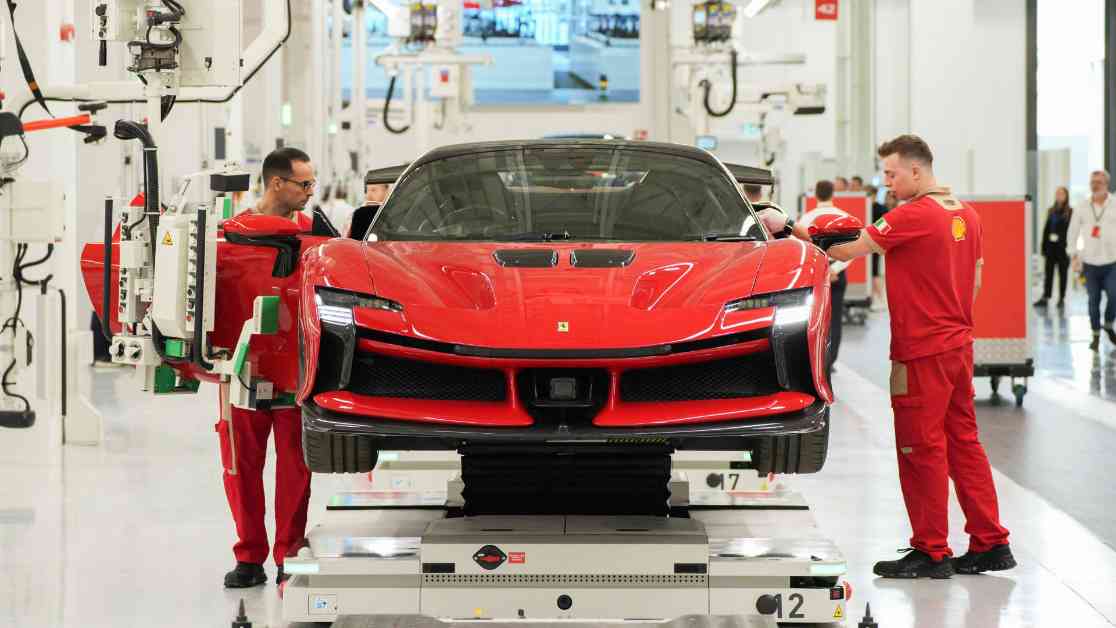Ferrari is considered a unique case in Europe’s automobile sector, standing out from other car giants facing pressure from potential U.S. tariffs. President-elect Donald Trump recently announced plans to impose tariffs on China, Canada, and Mexico, leading to concerns about disruptions in the auto industry’s supply chains and increased costs.
While many European manufacturers rely on factories and auto parts suppliers in Mexico, Europe was not initially included in Trump’s tariff announcement, providing some relief to EU policymakers. However, there are concerns that the region’s auto sector could be targeted in the future.
Ferrari, based in Maranello, Italy, is expected to be less affected by potential tariffs compared to its peers. The luxury carmaker has a loyal customer base that may be willing to absorb any price increases resulting from tariffs. Analysts believe that Ferrari’s unique position allows it to pass on additional costs to consumers without a significant impact on demand.
In contrast, Germany’s Porsche, a luxury car manufacturer owned by Volkswagen, may face more challenges if tariffs are imposed. Porsche produces its cars in Germany and could struggle to pass on higher costs to customers. While a 10% tariff could potentially be absorbed, larger tariffs could pose difficulties for the company.
Unlike Ferrari, Porsche may need to consider investing in creating a specific production line in the U.S., utilizing Volkswagen’s existing capacity in the country. However, this would require significant capital expenditure. Porsche’s shares have declined this year, reflecting concerns about the potential impact of tariffs on the company.
Overall, Ferrari’s ability to navigate potential tariffs highlights its unique position in the European auto industry. While other manufacturers may face challenges in adjusting to increased costs, Ferrari’s brand appeal and customer base set it apart from its competitors. As the situation continues to evolve, it will be interesting to see how different automakers adapt to changing trade dynamics and potential tariff implications.

















